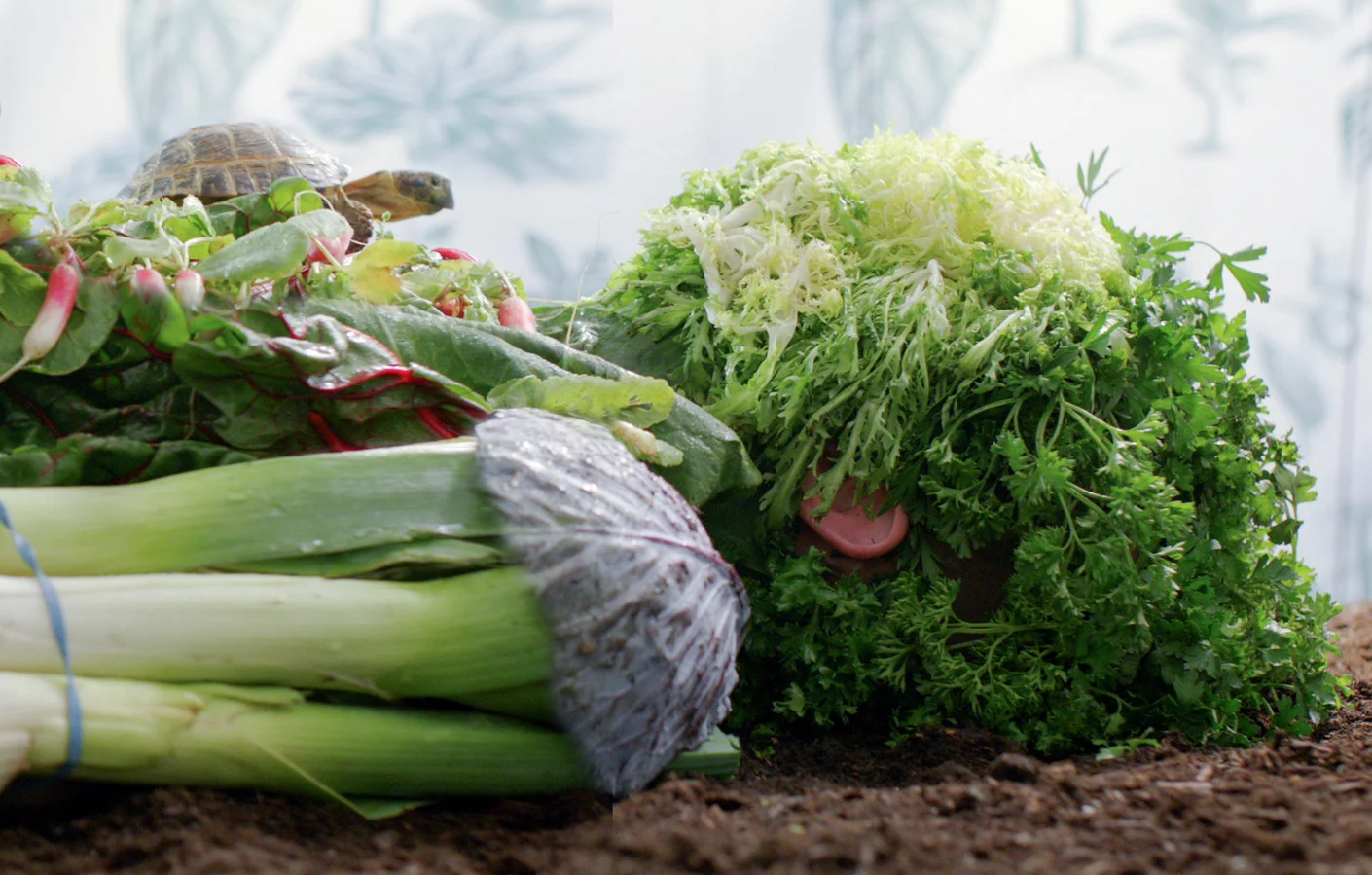Thousand Island: Writings from the Getty Salad Garden, vol. 5
Salad is the most elemental of dishes. Plants, still recognizable in their natural form, are harvested, chopped and then ‘dressed’–often with the simplest of ingredients. Exploring this elemental nature, the short film Fresh (2014) by artist Ben Hagari follows a man covered entirely in vegetables as he interacts with animals, machines and other humans in the form of a nature documentary.
The vegetable man in Fresh bears a striking similarity to the “Green Man,” an architectural motif and primal archetype of nature, growth and rebirth found on secular and ecclesial structures for hundreds of years. In the opening scene of Fresh, the vegetable man is at rest, nestled in rich loamy soil inside a greenhouse, mediately breathing as insects and animals wander across his body. The man is literally grounded, joining his place in the circle of life, providing nurture and sustenance to the living things around him.
Later he finds himself connected to a polygraph machine, his emotions monitored as he views images of plant life. In the 21st century, nature cannot be considered with our science, and it is significant that the vegetable man dwells in a greenhouse–“the quintessential hybrid of nature and culture,” as Hagari states. The techniques behind greenhouses have been in use since ancient Rome, but they were perfected during the Industrial Revolution. As part of a planet irrevocable altered by industry and its byproduct, pollution, the effect of mankind’s technological progress has come at great cost to the natural world and the cycle of life that the Green Man represents.
In the final scenes on Hagari’s film, the vegetable man’s body is harvested by a chef to create a salad comprised of a grinning face in a jar. This pickled life force is preserved so it may last through the fallow seasons when the earth is barren. Additionally, a series of wind instruments are carved from the harvest of the vegetable man’s body, which are then played in concert in the greenhouse. If you were ever curious as to what sounds a gourd makes, it’s not dissimilar to a duck or a loon. This final expression speaks to the transformative power of creativity, a frequent theme in Hagari’s work.
It comes as no surprise that as we experience climate change, there has also been a renewed focus on the natural world in the form of farm-to-table and slow-food movements. After all, the human animal cannot survive without the edible plants and animals that sustain it. The more humankind’s collective actions threaten the planet’s well being, the stronger the backlash grows with aims to protect and even glorify the basic pleasures: of salad, of gardens. Fresh reminds us that in even the simplest, most elemental subjects there exists the potential for culture, for art, and for beauty.
The watch Fresh, click here.
THOUSAND ISLAND is a new collection of creative, and at times tangential, writings dispatched from the Getty Salad Garden. Named after everyone’s least favorite salad dressing, yet also conjuring a mythic landscape, THOUSAND ISLAND is comprised of seven short pieces by seven writers–each loosely connected to Los Angeles, art, and salad.
